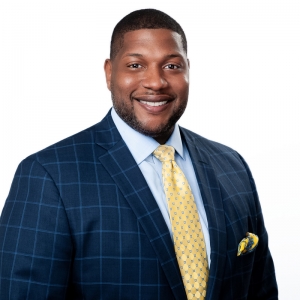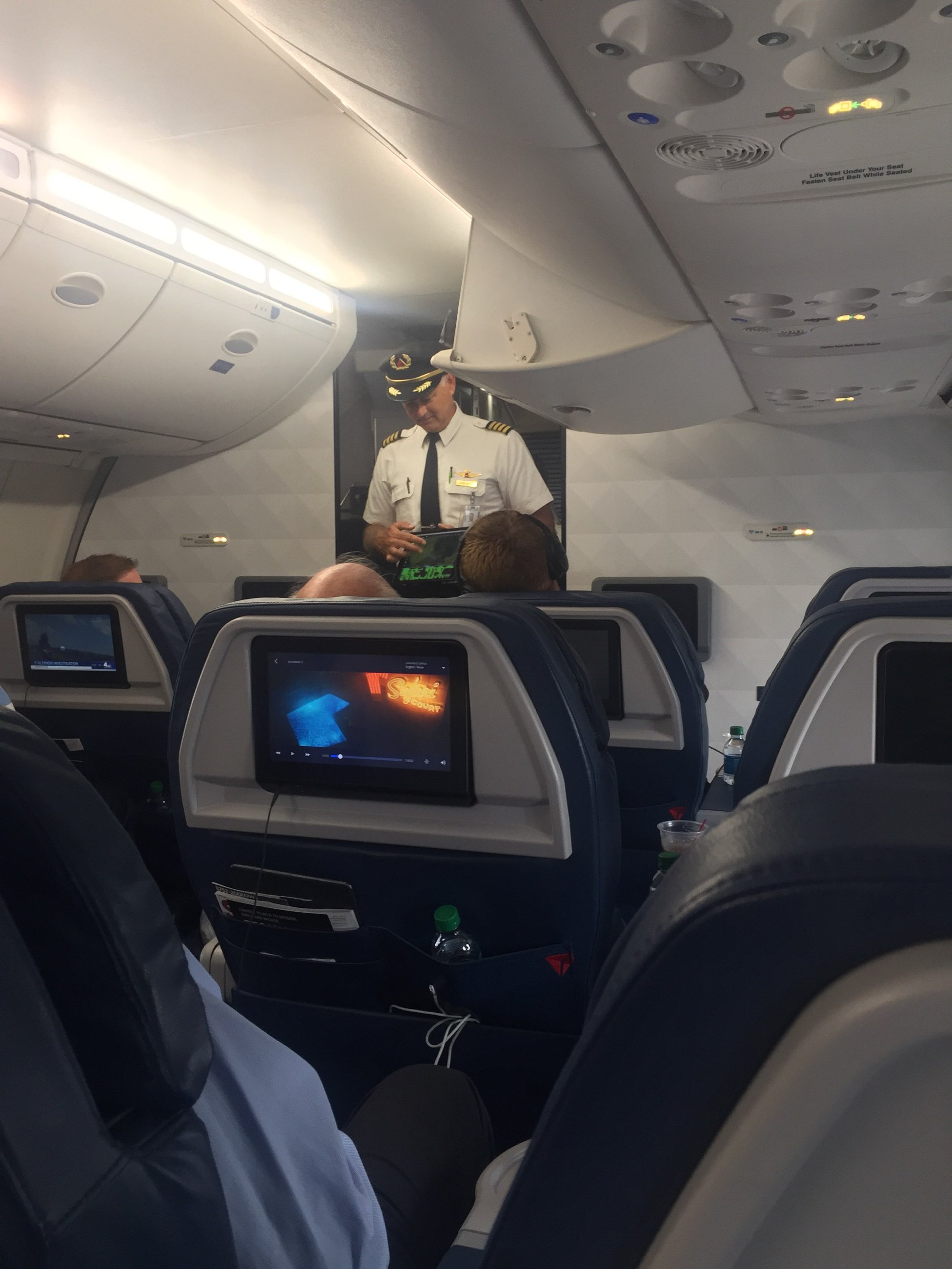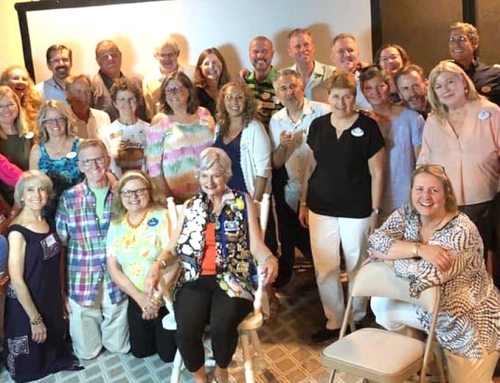A post by ILS Vice President Kwesi Johnson
Do you have a fear of flying? If yes, you’re not alone. Up to 40% of U.S. adults have some level of fear of flying and it’s within the top ten of the world’s most common fears.
Armed with this bit of information, it makes sense that most flight attendants go out of their way to reassure passengers and help them feel at ease. But how often do you see the pilot or co-pilot emerge from the cockpit to help calm nervous flyers?
*******
A few weeks ago, I boarded a Delta airplane and got settled in my seat. Passengers around me were shuffling their bags and and preparing to hear the usual announcements from the overhead speaker system. But instead, what we saw was the Captain walking the aisles and greeting passengers.
He addressed our section of the plane by introducing himself and telling us that he wanted to share some information to reassure us about the flight before taking off.
In his hand was some kind of flight apparatus. He told us there were storms brewing along the most direct path to our destination (Orlando) and that this apparatus was the exact tool needed to help redirect the course and guide the plane away from the storms. His goal, he said, was to avoid turbulence and have the smoothest flight possible.
Caring Out Loud®
The fact that he took the time, before the flight, to talk directly to passengers showed a sense of compassion and was a perfectly executed example of something our team calls: Caring Out Loud®.
Caring Out Loud® is communicating what’s happening either before or while it’s happening. A key component of Caring Out Loud® is the ability to proactively anticipate the customer’s (or in the case of healthcare – the patient’s) needs, worries, concerns, etc. and address them.
Proactive anticipation allows you to simply put the worry in the room and communicate to people clearly, before they have a chance to worry or draw their own conclusions.
He may not have known which passengers were afraid to fly, but he surely knew that many people are uneasy when traveling. By addressing it upfront and then clearly explaining how he planned to avoid the storms, he helped create a mood of trust and reassurance. All with a personal touch.
We Can Do The Same In Healthcare
Patients arrive to hospitals, clinics, or offices with a whole range of emotions: anxiety, nervousness, fear, hesitation, uncertainty, worry. What an incredible gift we can give them by mitigating these feelings, taking time to address the elephant in the room, and then narrating the process of care out loud so the patient knows what’s going on and they can be more at ease.
Before doing a routine blood draw on a child, we can explain to them what will happen, if it will hurt, and how long it will last so they will be less afraid of the needle.
Before conducting a woman’s first mammogram, we can explain to her what the machine does, what’s it looking for, how it might feel, how long the procedure will take, and when she can expect her results.
I’m happy to say we landed safely at Orlando International Airport, guided by our skilled Captain.
He did one other thing that really solidified for me that he’s a leader in the truest sense of the word: he talked up his flight attendants. He praised them in advance of the flight and told the entire plane that they would do a phenomenal job caring for passengers for the duration of the flight. And of course, it worked. Our flight attendants delivered friendly and excellent service during our very smooth flight to Orlando.
The famous Florence Nightingale quote, “Apprehension, uncertainty, waiting, expectation, fear of surprise, do a patient more harm than any exertion,” is true. Patients carry so many emotions with them into the exam room or the patient room. Caring Out Loud® is a tool that can be used in any industry including the airlines, to help alleviate the fear of flying. And, when we’re trying to create better patient experiences, it is an especially powerful tool for in the world of healthcare.








Leave A Comment